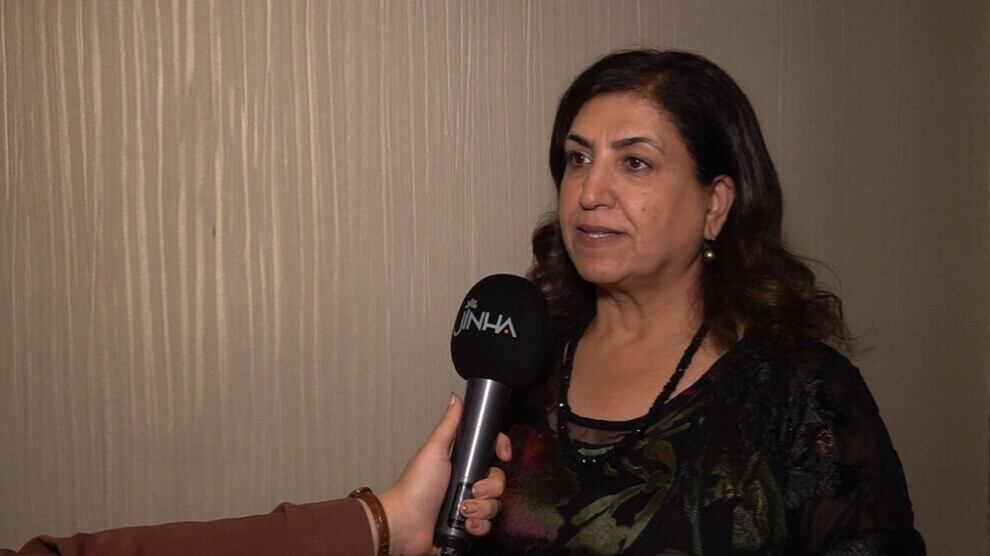Iraq’s Upcoming Elections: A Crucial Opportunity to Strengthen Women’s Representation and Tackle Challenges
As Iraq approaches its next parliamentary elections, women leaders are emphasizing the importance of transforming symbolic participation into genuine political power.

Helen Ahmed
Sulaimaniyah – With the parliamentary elections scheduled for November 11, women’s voices across Iraq are growing louder, calling for stronger political participation and legislative reform to safeguard their rights. While the current electoral law guarantees women at least 25% of parliamentary seats, activists and politicians alike insist that this quota is only a starting point — true equality demands influence, not just inclusion.
Despite operating within a traditionally patriarchal and conservative political culture, many Iraqi women continue to assert their presence in public life. They face not only institutional barriers but also repeated attempts by certain political blocs to pass laws that undermine women’s rights. As the elections draw near, female politicians and activists are mobilizing to turn representation into reform — pushing for laws that protect women and children, challenge outdated norms, and strengthen the role of women within the legislative framework.
Elections as a Defining Moment
According to Feryal Abdullah, the upcoming parliamentary elections will proceed as planned and mark a defining moment for women’s political empowerment. She underlined that the 25% representation rule gives women a legitimate platform to participate in legislative oversight and policymaking, adding that women’s involvement in parliamentary committees is a positive step toward influencing key national issues through a democratic mandate.
Abdullah urged women voters to use their voice wisely — to elect qualified female candidates based on merit and competence. She also called on newly elected women MPs to take their parliamentary responsibilities seriously by proposing amendments to discriminatory laws and pushing for reforms that promote fairness and equality.
“Women’s participation in the electoral process is essential to rebuilding trust and ensuring a powerful female voice in parliament — one capable of defending the rights of women and children with integrity and impact,” she said.
Women’s Rights Are Not a Negotiable Item
Abdullah criticized the tendency of some political blocs to treat women’s rights as bargaining chips during parliamentary negotiations. “Too often,” she explained, “issues related to women and children are sidelined or sacrificed in political deals between parties.”
She urged female lawmakers in the next parliament to ensure that women’s rights become a central component of political agreements, not an afterthought. True progress, she stressed, will only come when the political establishment shows genuine commitment to gender equality rather than temporary gestures.
“Guaranteeing women’s rights in parliament requires sincere political will and legislation built on equality and justice — not on passing compromises,” she stated firmly.
The Responsibility of Women MPs
Abdullah highlighted that women in the Iraqi parliament carry a profound responsibility to protect and advance women’s rights. She noted that, although women in the Kurdistan Region have gained access to various political and economic positions, many still face cultural and institutional barriers.
While the quota system opens the door for women’s participation, Abdullah argued that it does not ensure real equality, especially in a region where patriarchal norms remain deeply rooted. She emphasized that women MPs must act independently and assertively to influence decision-making processes, transforming their parliamentary presence into genuine political power.
“Women’s empowerment isn’t about numbers,” she said. “It’s about courage, independence, and the political will to make women’s rights an integral part of legislation — not a secondary item in political compromises.”
A Call for Just Legislation and Firm Action Against Violence
Abdullah also stressed that the defense of women’s rights should not rest solely on the shoulders of women. “Male lawmakers must play an active role in supporting gender equality and advocating for fair laws that empower women,” she said.
She noted that civil society organizations and women’s groups have been working tirelessly across Iraq’s political spectrum to advance these causes, but that their efforts will remain limited without meaningful support from male allies in parliament.
Abdullah pointed out that the Kurdistan Region’s legal framework is more progressive in some areas compared to federal Iraq — for example, laws restricting polygamy and amendments to personal status legislation — but still requires continuous reform and stronger enforcement.
She concluded by emphasizing that “just laws and effective legal institutions are essential to reducing violence and femicide,” calling on both male and female MPs to take decisive action against crimes targeting women.
“The protection of women’s rights must be rooted in both law and moral conviction,” Abdullah said, expressing hope that the next generation of women lawmakers in Iraq and Kurdistan will make tangible progress toward justice and equality.
